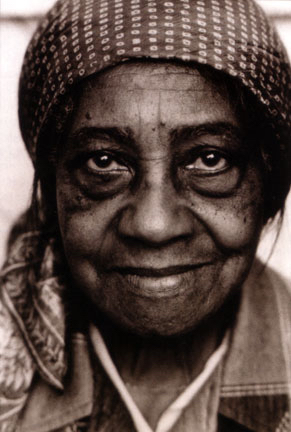Playlist: Matthew Cochran's Portfolio

Featured
Elizabeth "Libba" Cotten: An Unlikely Folk Hero
From Matthew Cochran | 12:12
Elizabeth “Libba” Cotton’s “Freight Train” was the unofficial anthem of the 1960’s folk music revival. Joan Baez, Peter Paul and Mary, and Jerry Garcia all did versions of the tune. Today, "Freight Train" is performed everywhere from coffeehouses to stadiums. As it turns out, the story of “Freight Train” and its composer is a pretty remarkable one.


Elizabeth “Libba” Cotton’s “Freight Train” was the unofficial anthem of the 1960’s folk music revival. Joan Baez, Peter Paul and Mary, Jerry Garcia…They all did versions of the tune. Guitarists are probably familiar with Tommy Emmanuel or Chet Atkins’ arrangements, which are terrific. I’ve heard “Freight Train” performed everywhere from coffeehouses to stadiums. It was the first fingerstyle song I ever learned on the guitar, and I just always assumed it was one of those old folk songs that have been around so long that nobody knows who wrote the thing. Well, as it turns out, the story of “Freight Train” and its composer is a pretty remarkable one.
Elizabeth Cotton was born January 5, 1893 in Chapel Hill, NC. She fell in love with the banjo and the guitar at an early age. Elizabeth Cotten played guitar anytime she could sneak it in, and she got pretty good. But this was the 19-teens we’re talking about, and the roles of Southern African American women were pretty narrowly defined at the time, and generally speaking, those definitions did not extend to traveling around and performing before the general public. I mean, you can find exceptions like Bessie Smith or Ma Rainey who got their start as part of the Minstrel circuit. But that wasn’t the plan for Elizabeth.

Mike Seeger (left) and Pete Seeger (right)
She was in her early teens when she married a man named Frank Cotten. They had a daughter named Lillie. Elizabeth took care of the kid, and she did occasional work as a domestic. She continued to play the guitar, but apparently her choice of repertoire didn’t always suit the more pious members of her church. Once Elizabeth’s daughter Lillie was grown up and out of the house, Elizabeth and her husband Frank split up and Elizabeth moved to Washington DC where she got a job selling dolls at Lansburgh’s department store. By this point, it’d been decades since she played the guitar seriously.
You know that saying “Luck is what happens when preparation meets opportunity”? Well, (laugh) I guess Elizabeth Cotton was playing the long game, because one day she hears this kid crying in the store—it was a little girl that had lost her mother. Elizabeth reunites the daughter with the mother and in the process strikes up a friendship with the mom. The mom was looking for some help around the house and convinced Elizabeth to come work for her. The mom was Ruth Crawford Seeger, who was a composer, and happened to be one of the foremost experts in American folk music. The daughter was Peggy Seeger, sister of Mike Seeger and half sister of Pete Seeger, all of whom went on to become well-known folk singers and historians.
 The Seegers had guitars lying all over the house. But it took a couple of years before Elizabeth picked one up and started to play. Of course, when she did, the family of folk singers and historians were completely amazed to discover that their housekeeper, who they’d affectionately nicknamed “Libba” was in fact a brilliant folk guitarist and singer—the very same kind of performer that, you know, guys like Alan Lomax and Cecil Sharp would travel to the back of beyond just to find. Elizabeth Cotten made four records with Mike Seeger, including Elizabeth Cotten Live! which won a Grammy for Best Ethnic or Traditional Folk Recording in 1985. Here’s a bit of “Shake Sugarie” from that project. Elizabeth “Libba” Cotten delighted audiences with her songs and stories right up to the age of 94, having made the most her life’s second act.
The Seegers had guitars lying all over the house. But it took a couple of years before Elizabeth picked one up and started to play. Of course, when she did, the family of folk singers and historians were completely amazed to discover that their housekeeper, who they’d affectionately nicknamed “Libba” was in fact a brilliant folk guitarist and singer—the very same kind of performer that, you know, guys like Alan Lomax and Cecil Sharp would travel to the back of beyond just to find. Elizabeth Cotten made four records with Mike Seeger, including Elizabeth Cotten Live! which won a Grammy for Best Ethnic or Traditional Folk Recording in 1985. Here’s a bit of “Shake Sugarie” from that project. Elizabeth “Libba” Cotten delighted audiences with her songs and stories right up to the age of 94, having made the most her life’s second act.